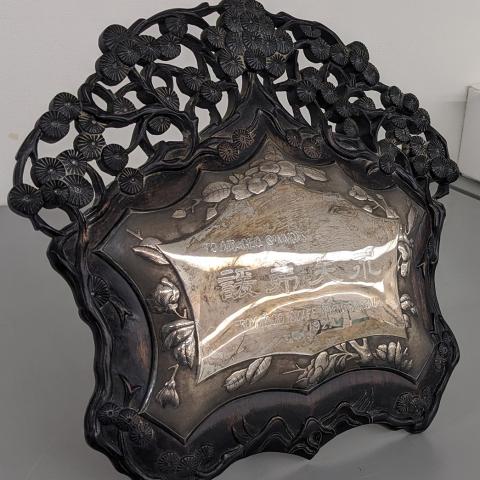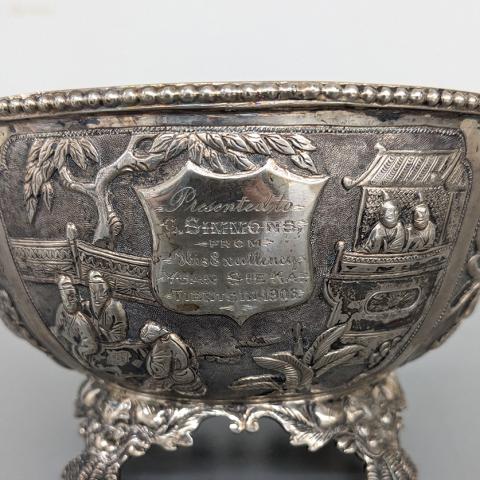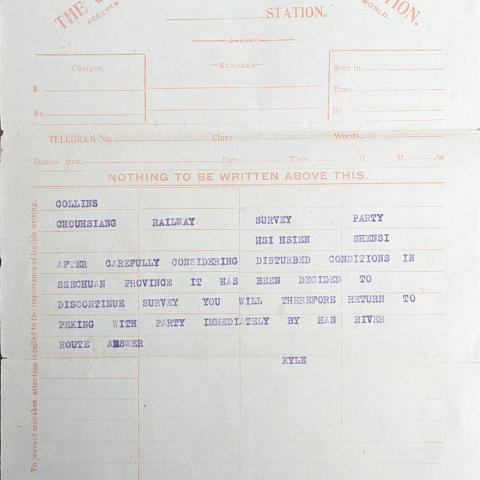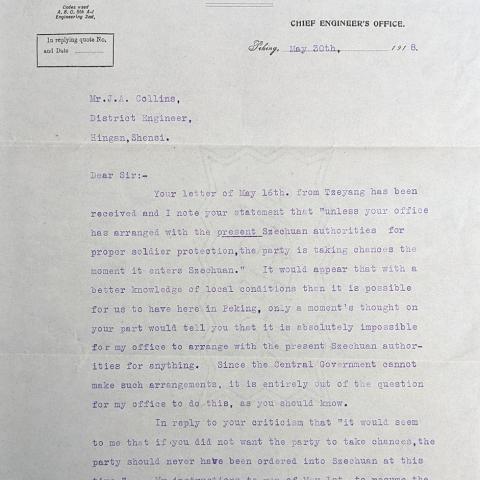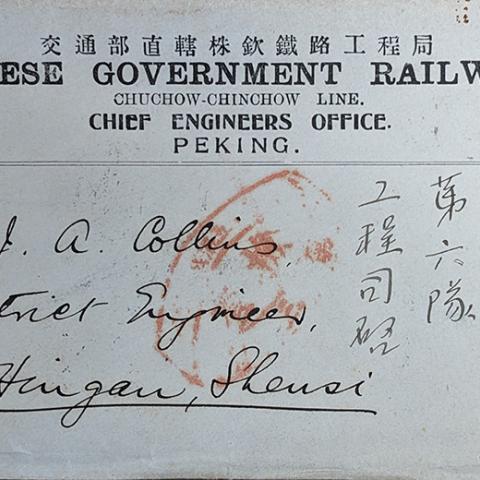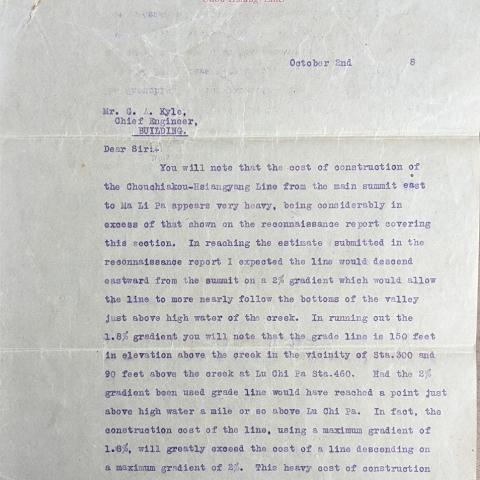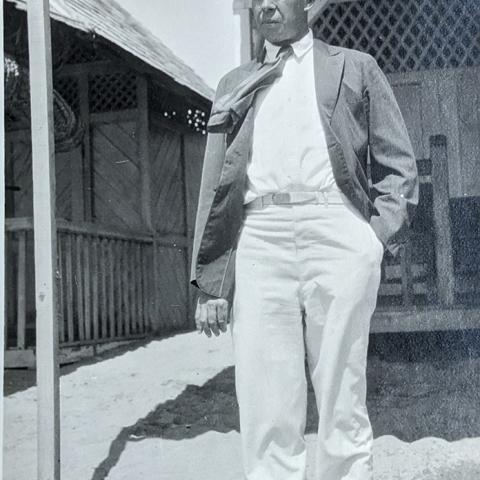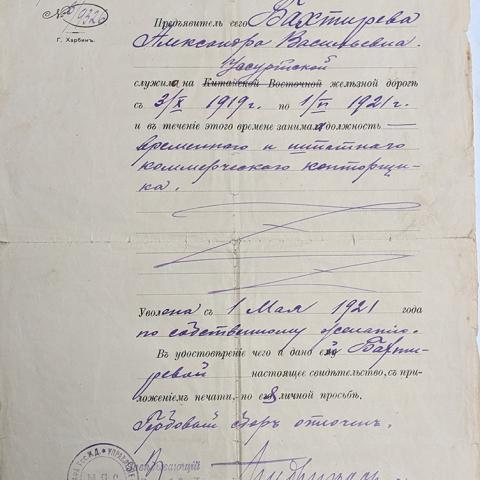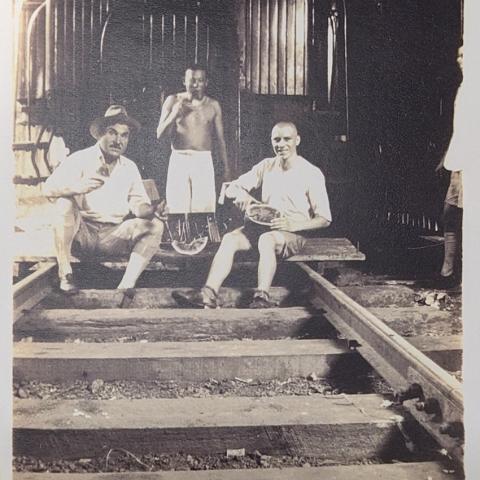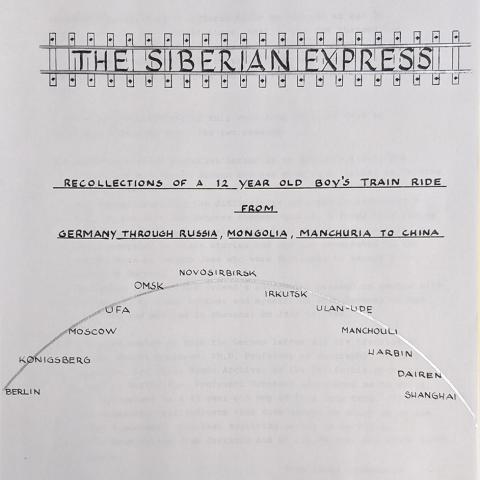The Role of the Rail: Traveling to and Through China in the late 19th and early 20th century
March 28, 2025
Trains were an important transportation mode for visitors, workers, and immigrants traveling to and across China at the end of the 19th century and in the early 20th century. The railway served as a source of employment, as well as an integral way for people to get where they needed to go. Several Old China Hands Archives collections document the importance of rail in the lives of foreigners living in China during this time.
The George Simmons Collection records the work of British citizen George Simmons, Sr. in helping build the Peking-Mukden Railroad (PMR) in Northern China in the 1890s. He left briefly during the Boxer Rebellion, but returned to help complete the railroad. After the railway was completed, he stayed on and trained and supervised the locomotive engineers and railway staff.
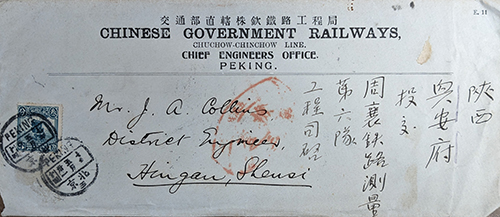 American James Arthur Collins went to China to work as a District Engineer for the Chinese Government Railways Chouchiakou-Hsiangyang Line. His work on a reconnaissance survey started in 1917, but was temporarily suspended due to World War I and the civil war in China. After returning to work, his survey team was ultimately recalled in May 1918 due to unrest in Szechuan [Sichuan]. A number of pieces of ephemera document this in the Collins Family Collection.
American James Arthur Collins went to China to work as a District Engineer for the Chinese Government Railways Chouchiakou-Hsiangyang Line. His work on a reconnaissance survey started in 1917, but was temporarily suspended due to World War I and the civil war in China. After returning to work, his survey team was ultimately recalled in May 1918 due to unrest in Szechuan [Sichuan]. A number of pieces of ephemera document this in the Collins Family Collection.
At the end of the 19th century the Russian Empire invested heavily in the construction of railways, and many railway workers came from Russia. The Zoya Shlakis Collection contains documents related to her mother Alexandra's employment with the Chinese Eastern Railway from 1919-1921. 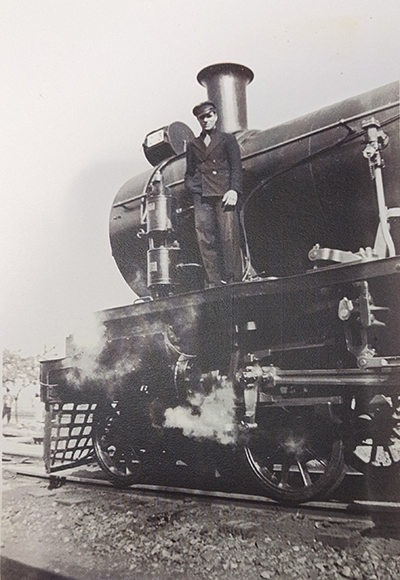 The Nina Shestakoff Collection contains photographs of Vladimir Ivonovich Troosh, whose father Ivan Efimovich Troosh worked for the railroad in Manchuria after the Russian Revolution.
The Nina Shestakoff Collection contains photographs of Vladimir Ivonovich Troosh, whose father Ivan Efimovich Troosh worked for the railroad in Manchuria after the Russian Revolution.
The Old China Hands Oral History Project contains a number of accounts discussing the role of rail for families from Russia at this time. Robert Melnikoff's father Michal was born in Harbin in 1908. Melnikoff noted the significant Russian presence in Harbin and Mukden [Shenyang] pre-Revolution due to Tsarist-era railroad construction and maintenance.
George Franke was also born in Harbin, but in 1926. His uncle was a railway station master on the railway in Manchuria until the Japanese took control. Much like Franke's uncle, Abe Kriger's Russian grandfather worked as a railroad engineer in the early 1900s.
Isabelle Maynard (née Zimmerman) was born in Tientsin in 1929 to Russian parents. Her family didn’t work for the railway, but in her oral history interview she described her solo trip on the Trans-Siberian Railway to move to Harbin to attend school. George Meridian was born in Russia, but his family left Vladivostok in the aftermath of the Russian Revolution. In his interview he described his experience traveling from Harbin to Shanghai in September 1937. The first train he was on was derailed and it took him forty days to get to his destination, as the train moved behind the battle lines in the Second Sino-Japanese War. Japanese imperial military aggression at this time meant that the control of both land and rail was often in flux.
The railway could also serve as a lifeline for those forced to leave their homelands. Bodo (Bud) Zimmermann recollected his travel experience in The Siberian Express: Recollections of a 12 Year Old Boy's Train Ride From Germany Through Russia, Mongolia, Manchuria to China. His German Jewish family escaped on May 29, 1940 and arrived in Shanghai on June 19, 1940. His father's friend sent a letter in 1940, advising on the journey, including a long list of visas and permits required to leave Germany, the need to not attempt to bring too much baggage, and noting frequent train changes.
Image Gallery
Post tagged as: old china hands archives, audiovisual materials, archives, photographs, ephemera, international
Read more Peek in the Stacks blog entries